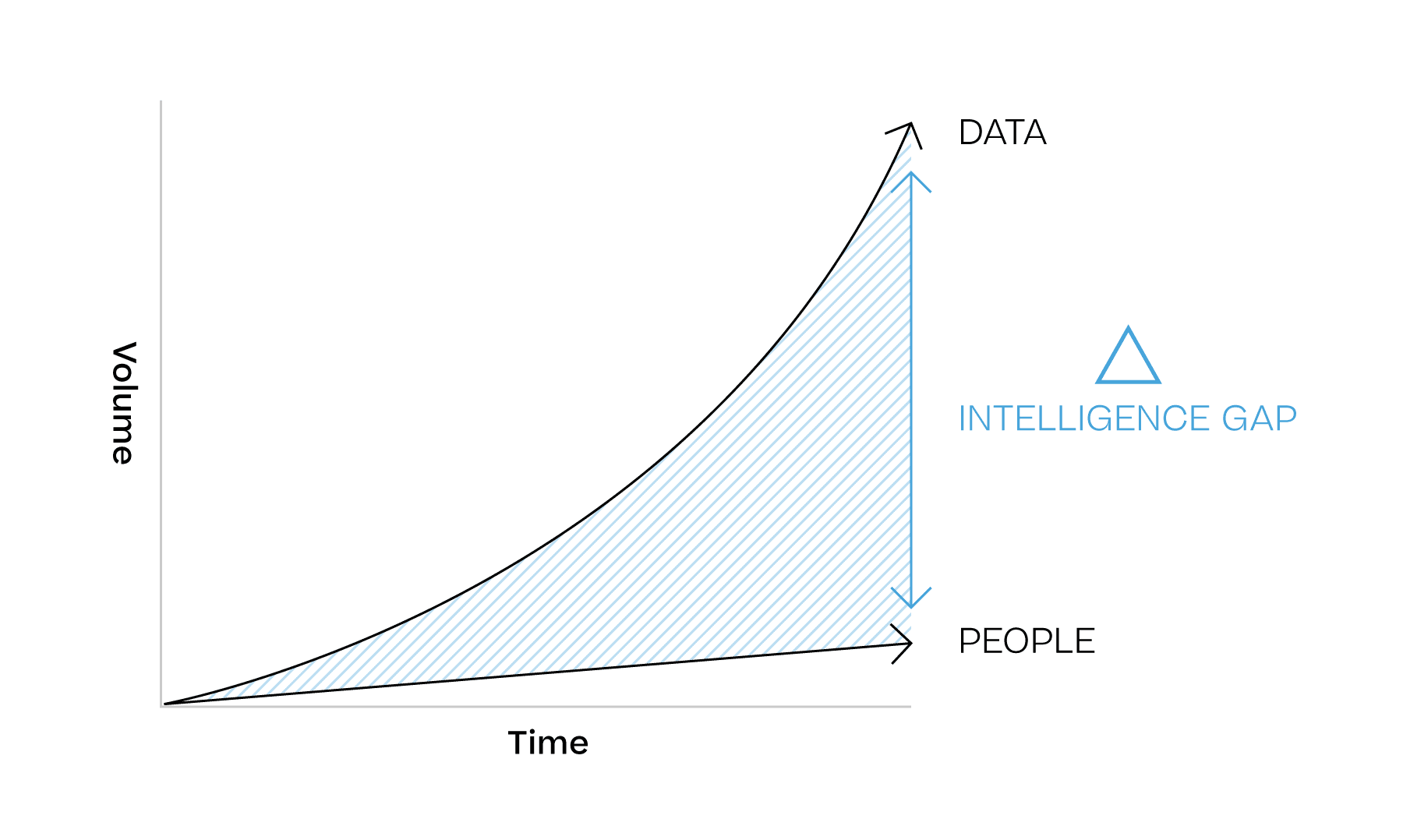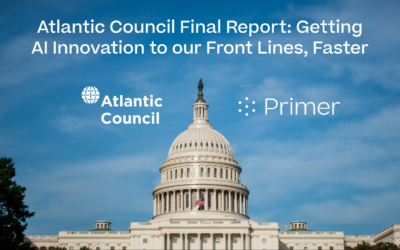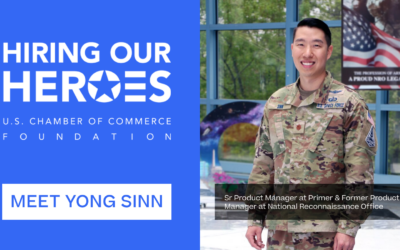A beginner’s guide to natural language processing, a tool that will change business as we know it.
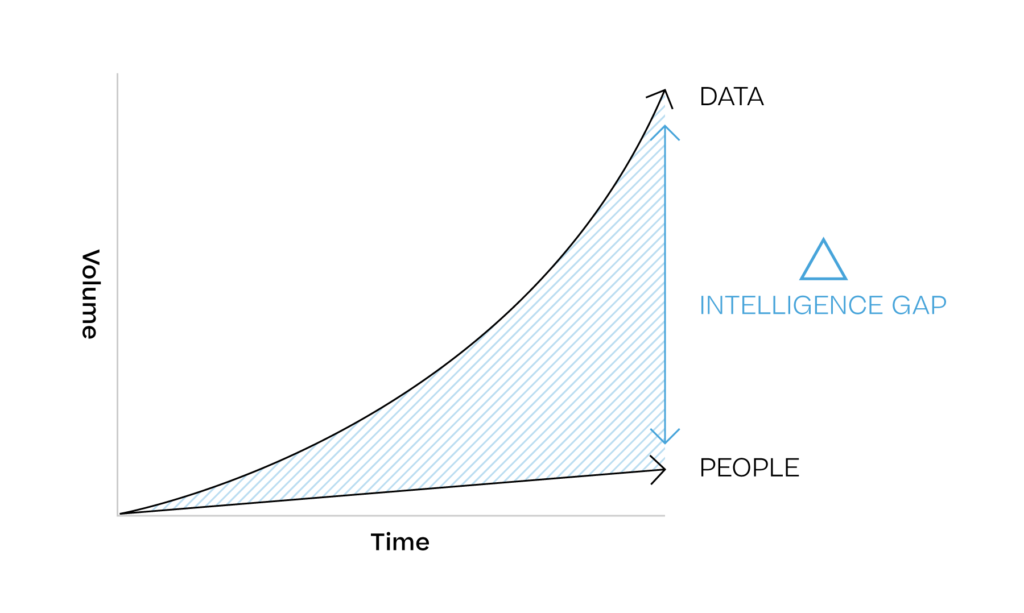
Imagine being able to detect disinformation bots as soon as they begin spreading false information on social media. Or get in front of negative reviews about an important product launch before it becomes a PR problem. Or know how to best deploy humanitarian efforts as a crisis unfolds.
All of these problems are solvable with natural language processing, or NLP, the machine-learning technology that Primer deploys today. While NLP is just one type of artificial intelligence, its value has broad implications across government and businesses alike.
What is natural language processing?
Natural language processing, shortened to NLP, is the science of building machines that can read and write similar to how humans do. The goal of NLP is to organize massive amounts of text data (think: millions of documents) into information so humans can use it to solve problems. Since machines can perform tasks much faster than humans, we can work with machines to read massive amounts of text in a fraction of the time. While NLP is just one type of artificial intelligence that is becoming important for analysts to understand, it’s a critical piece to solving lots of problems.
Right now there’s a huge gap between the amount of information we’re analyzing, and the amount of information that we could use to bring deeper meaning and understanding to our world. At Primer, we call this gap the intelligence gap, and it’s profoundly important for understanding the value of NLP.
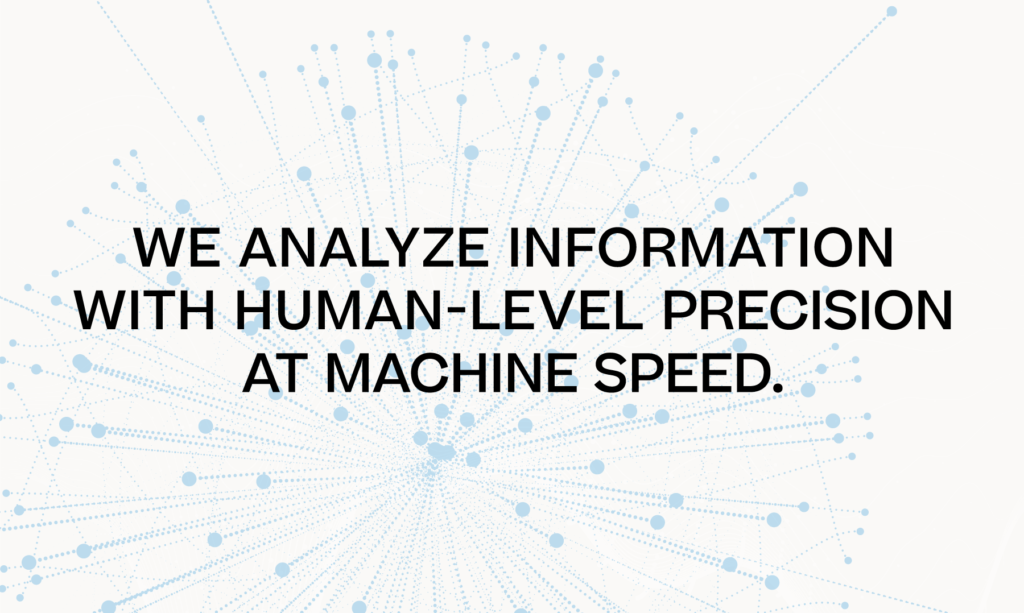
The intelligence gap
The amount of data we are collecting globally is growing exponentially. And while that’s happening, the number of human analysts is only growing linearly – in other words, we as humans simply can’t keep up.
In reality, this trove of unstructured data is so vast, we don’t even know what we don’t know. In other words, we are looking to speed up the analysis we’re already doing and find the “unknown” unknowns that have the potential to give us an edge or change our worldview. NLP helps us create structure within high volumes of unstructured data. That means we can now automate analysis and find information that we didn’t even know we were looking for.
We can’t hire ourselves out of the intelligence gap, so we need new ways to close it. NLP has become the best tool to help us bridge the divide between the information available now and the information we actually use. With NLP, we can now analyze information at machine speed, but with human-level precision.
Closing the intelligence gap is precisely why Primer exists. In short, without unlimited time and human capital, information that can make or break a business – or inform consequential policy or operations – is simply lost.
The implications of closing this gap cannot be underestimated. Putting NLP in the hands of analysts, decision-makers and operators gives them the critical capabilities they need to advance government missions, the global economy, our financial system, and more.
The problem with unstructured data
Does your organization or company have piles of unstructured, text-based data? What might you do with that information if you could surface or summarize exactly what you’d want to know? Companies and organizations alike are realizing that they are missing critical information and that they cannot successfully operate or compete in this new world without having this data at their fingertips. Primer makes it easy for companies and organizations to leverage their idle piles of data and use it to inform critical decision-making and action, without needing a team of data scientists to do so. The majority of the world’s most valuable information – up to 80% according to Deloitte – sits idle in the form of unstructured, text-based data.
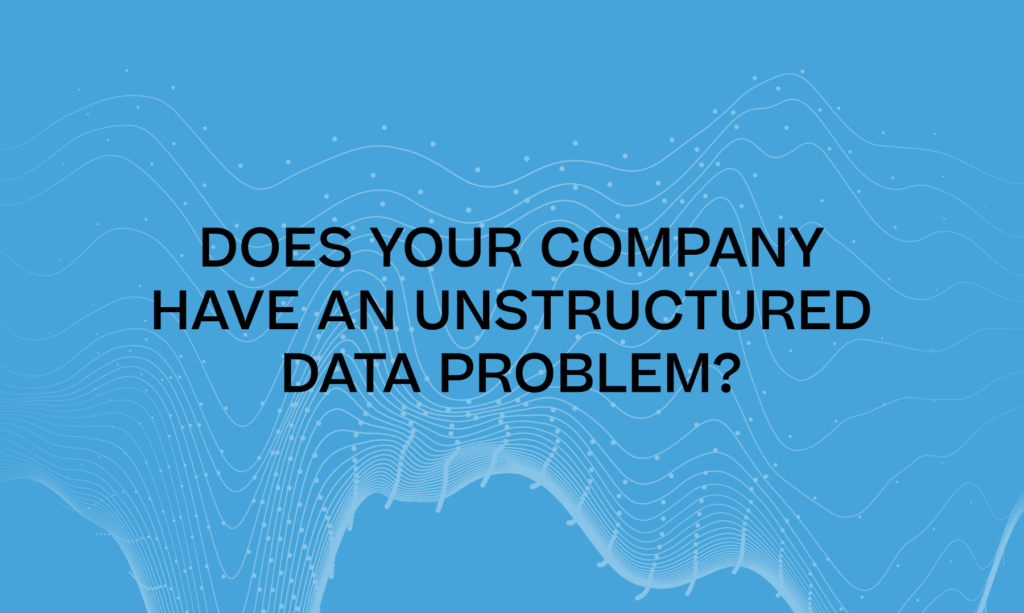
Think of NLP as a resource to create a summary of summaries – from a massive number of sources – all with human-level accuracy. Or a way not just to find the needle in the haystack, but to identify the next haystack. For example, Department of Defense analysts use Primer’s NLP to look through 2,500 intelligence reports in the same time it would normally take to read and process just one report. Walmart uses Primer to analyze consumer insights in a fraction of the time it would take a human to do the same thing. And National Security organizations rely on Primer’s NLP Platform to reveal previously unknown patterns and connections between people, organizations, and locations, all which helps them detect disinformation activity faster. NLP can also help track, analyze, and summarize evolving situations – such as those unfolding in Afghanistan, the changing nature of COVID-19, or natural disasters such as wildfires, hurricanes, and floods.
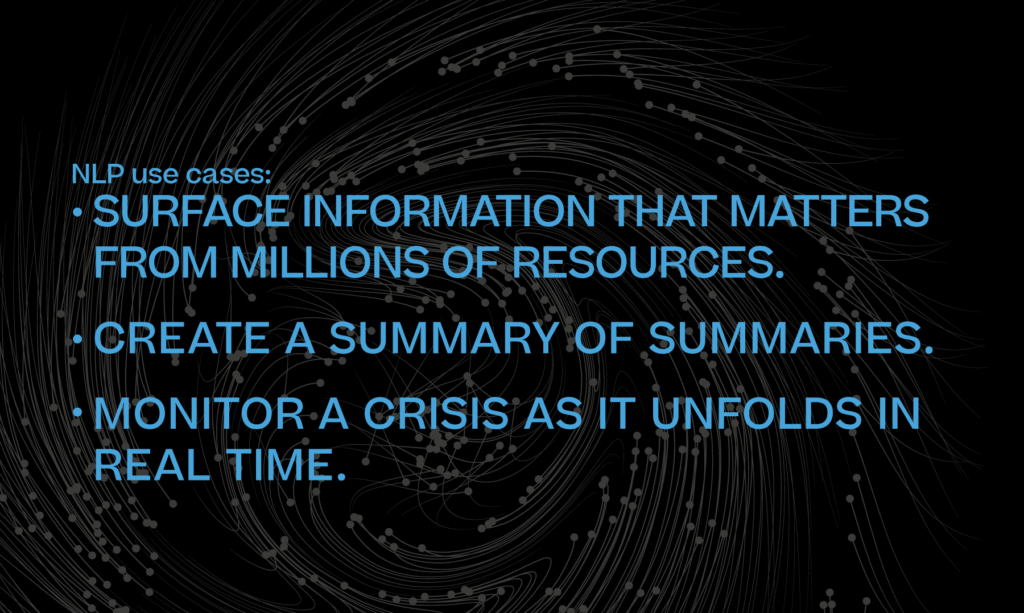
Why NLP matters
Imagine you’re a retail company that has thousands of reviews pouring into your platform by the hour. NLP could help you stay ahead of those reviews by generating insights you previously couldn’t even find manually, and in a fraction of the time. NLP sifts through vast volumes of data to: eliminate duplicate information; extract key entities, such as people, locations, and organizations; cluster related news stories and images; conduct trend, sentiment, and topic analysis; and detect suspected disinformation – all in near-real time.
For example, Primer worked with Walmart to track and analyze mentions of the company in social media, allowing Walmart to track and respond in real time to customer feedback, sentiment trends, and inauthentic tweets from bot accounts.
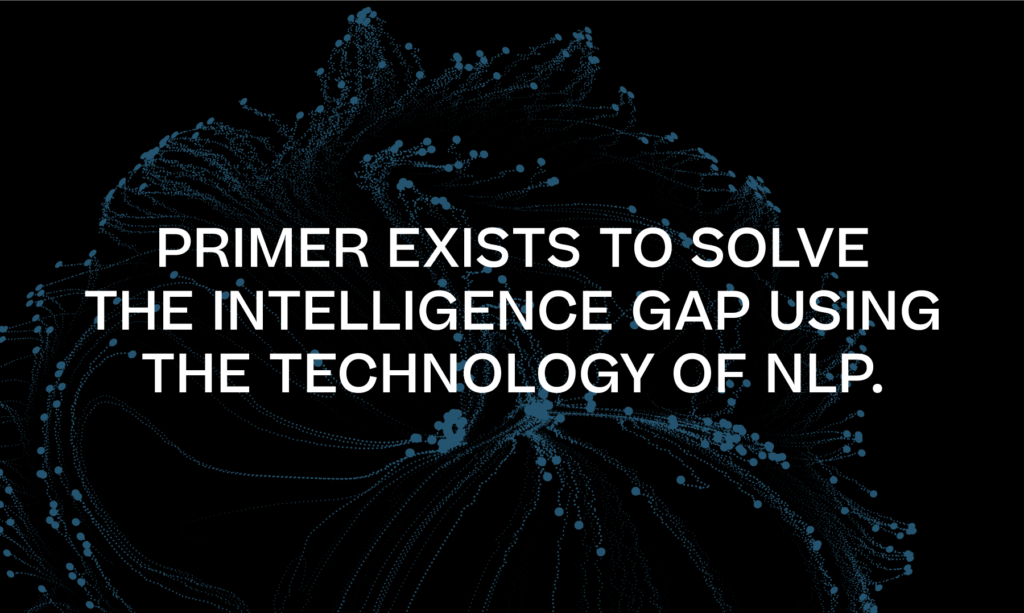
Within NLP, financial analysts can analyze a portfolio company’s regulatory filings (e.g. 10Ks, 10Qs) from the last decade, or process thousands of pages of earnings call transcripts. This information could then be used to assess evolving risk, make investment decisions, or detect other information that’s critical to your investment or business. Investigative journalists could crunch the data on thousands of public documents to identify people, organizations, and locations, accelerating time to insight and potentially discover the next breaking news story. Or analysts could scan millions of documents a day for every mention of companies based in South East Asia falling victim to cyber attacks. The applications truly span every industry due to the foundational speed at which information is synthesized.
In the future, NLP will allow you to ask questions of your data just as easily, and in the same words, as you would ask a human expert with an analysis turnaround measured in seconds, not months.
We’re at the pivotal breakthrough moment of NLP, and it’s incredible to see the ubiquitous applications of the technology across business and government. As a leader in NLP, Primer makes implementing this technology easy, fast, and scalable with its next-generation NLP Platform. If you’d like to learn more about what we’re up to and what’s next in NLP, request a demo here.
